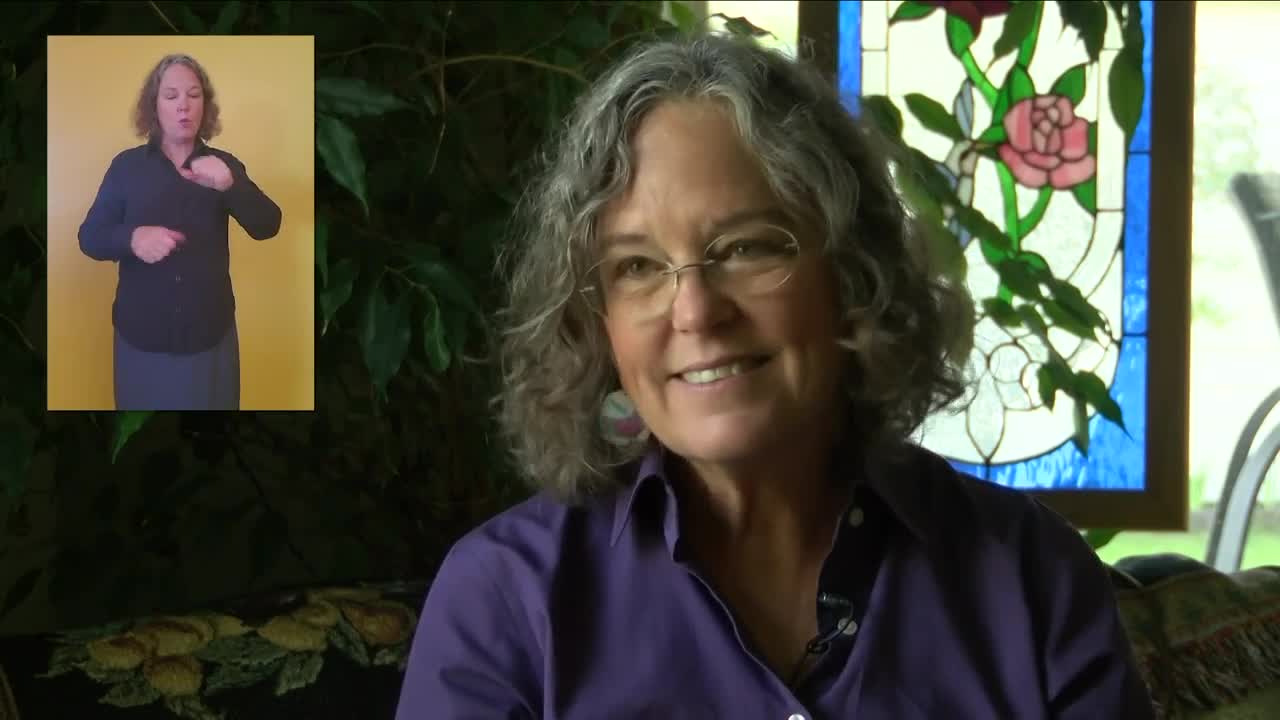HELENA — When it comes to getting important information about the coronavirus (COVID-19), most people can turn on the TV to listen to a press conference.
But for the thousands of deaf and hard of hearing people in the Treasure State, there are additional barriers.
That’s why you’ve likely seen Vicki Gregori on your screen, standing next to Gov. Steve Bullock during his press conferences for the past two months.
As an American Sign Language (ASL) interpreter, Gregori passionate about equal access for all Montanans and was honored to work during this time.
"I was really glad to be home and available for it," said Gregori, who lives in Helena with her family and is part of a small network of ASL interpreters across the state.
When she’s working, Gregori must quickly translate the governor’s words into ASL. It requires focus, dedication, and the ability to think on her feet.
"I love ASL," she said. "I love being an interpreter. It’s amazing."
There are many reasons why the work of interpreters is necessary for deaf people. While closed captioning is an option for some people, it’s not always accurate.
In addition, reading English quickly can pose a challenge for someone whose primary language is ASL.
"ASL is its own language, with its own syntax, all those things,” Gregori said. "It's a visual, conceptual language."
Masks are becoming increasingly common, but Gregori isn’t able to wear one when she’s working, since some people read lips. Gregori also uses her facial expressions and body language to convey tone and urgency.
Coronavirus has also impacted vocabulary. She’s now regularly signing words like coronavirus and quarantine, with the help of online resources like the Daily Moth.
"There’s a lovely network of interpreters around the country who discuss this stuff," Gregori said.
Learning ASL as a teenager in Great Falls sparked Gregori’s eventual career, which she said is still rewarding, despite the current challenges.
"Every time I make a mistake, which is every time, you go home and you think, ugh, I'm old enough, I don't need this anymore. I'm gonna retire," she said. "But why would I? I still love it, it still makes me money, and I'm still doing a service."
Kirk Hash, Jr. is fully aware of the importance of an interpreter. As the president of the Missoula Club of the Deaf and secretary of the Montana Association of the Deaf, he advocated for an interpreter at the Capitol for the governor’s updates.
According to Hash, Montana was one of the last states in the country to employ an ASL interpreter at the coronavirus press conferences, which he said made him feel embarrassed and disappointed.
He wrote letters to state legislators and Gov. Bullock, urging them to make a change. When he finally saw Gregori working in late March, Hash said he felt a weight lifted off his shoulders.
In an email last week, he wrote, "I felt so relieved and triumphant."




